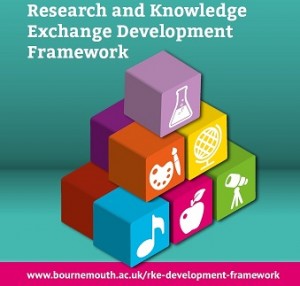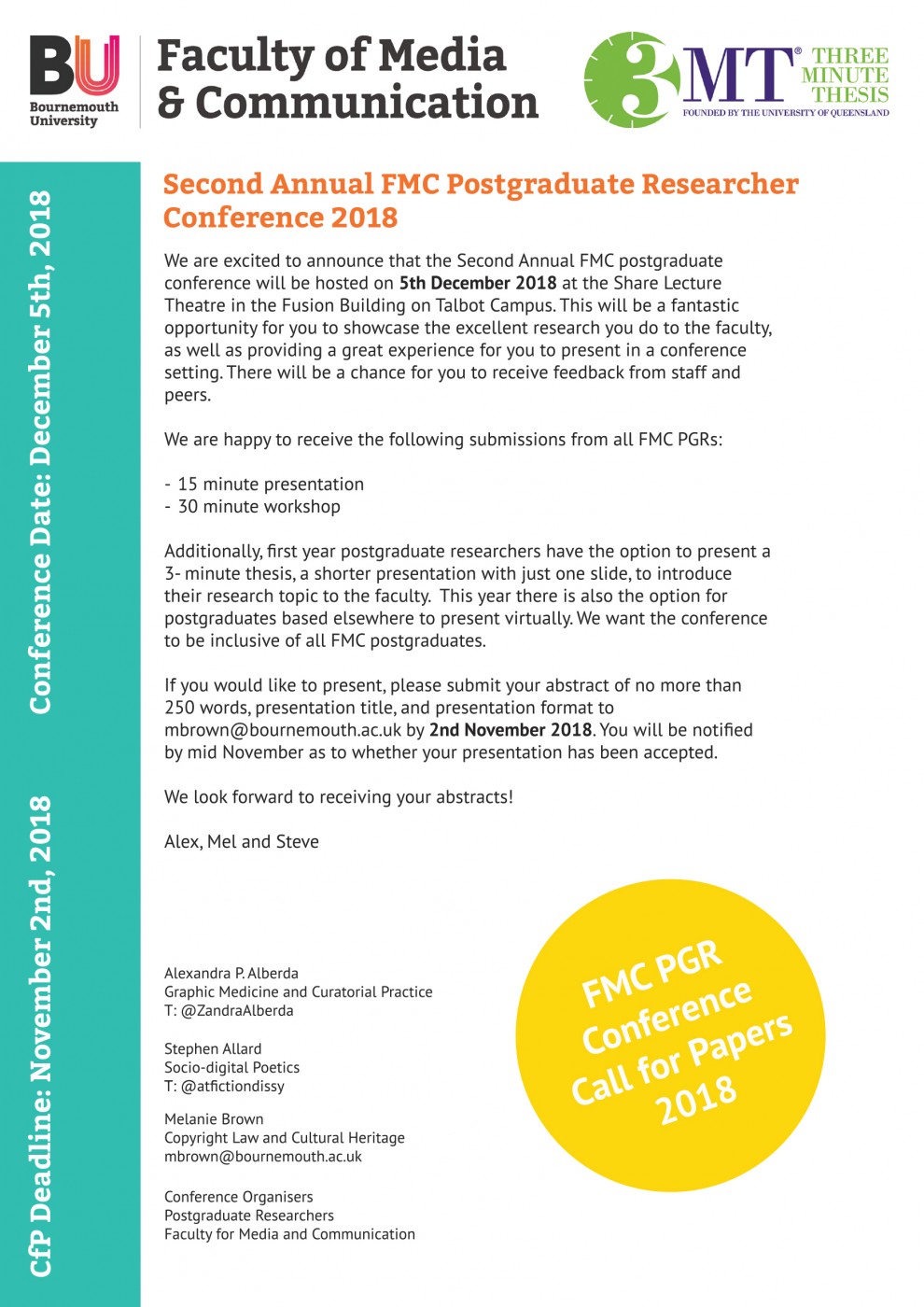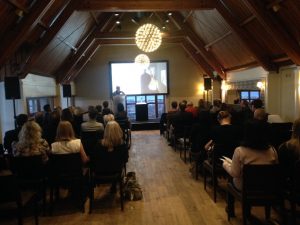To read the policy update in full with the infographics click here or continue to read below without the infographics for widening participation.
It’s been a busy week for activity in Parliament along with several new reports published, including the subject level TEF details and a focus on part time and flexible provision. Meanwhile the sector continues to lobbying efforts in hope of influencing the forthcoming outcomes of the Review of post-18 Education and Funding. It’s a bumper update this week so do scan through to read the sections of most interest to your role.
TEF and Grade Inflation
Grade Inflation
Sam Gyimah spoke on Monday to outline a new measure to discourage grade inflation within HE institutions which will be piloted through the second year of TEF subject level pilots. The DfE news story states:
Announcing a second year of pilots to move subject-level TEF a step closer, Sam Gyimah confirmed today that these will also look at grade inflation, with TEF panellists reviewing evidence to see whether universities are taking a responsible approach to degree grading and not awarding excessive numbers of firsts and 2:1s. It means a university’s provider-level rating of gold, silver or bronze will take their approach to tackling grade inflation into account.
Grade inflation will be an important feature of the criteria considered alongside how a university is stretching its students through course design and assessment, and through their ability to develop independence, knowledge and skills that reflect their full potential. It forms a key part of the government’s commitment to delivering real choice for prospective students.
This is one of the first measures taken by the government to tackle grade inflation, with the plans confirmed in the government’s response to the subject-level TEF consultation.
In the last five years alone, figures from the Higher Education Stats Authority show the proportion of graduates who gained a first class degree has increased from 18% in 2012/13 to 26% in 2016/17, which means over a quarter of graduates are now securing the top grade.
Despite Gyimah’s speech the grade inflation presence within the subject level TEF pilot will be light touch this year because of the level of opposition to the metric during the consultation process:
Grade inflation is an important issue and the Government is committed to ensuring it is addressed so that students and employers can have confidence in the value of higher education qualifications. It was one of the more contentious topics in the consultation. In response to the question posed, the consultation demonstrated support for our proposal to apply the grade inflation metric only at provider-level and we will therefore maintain this approach. We acknowledge however that challenges to the grade inflation metric were raised in both the consultation and pilot findings. While almost half of respondents agreed to our proposal, many respondents also stated that they did not support the continued use of this metric in the TEF at any level and the pilot found the metric was limited in its current form. To address these concerns, the OfS will use the second year of the subject-level pilots to test some refinements to the grade inflation metric, exploring how it can be improved. This includes presenting additional data such as trends in prior attainment alongside the grade inflation data to help panels better account for other factors that might influence grades. (Pages 6-7 of Government’s response link.)
Research Professional write about the removal of the ‘contentious’ teaching intensity measure.
Conservative Women have an article by Chris McGovern supporting Gyimah’s plans to address grade inflation. While the BBC considers: Does it matter what degree grade you get?
Subject level TEF
The Government issued its analysis and response to the subject-level TEF consultation. The first year of subject level TEF pilots have concluded (read the findings here). The second year pilots are underway; their design is based on the outcomes from the first pilots and the subject level TEF consultation.
While the second year of subject-level TEF pilots runs the Independent TEF Review (required by the Higher Education and Research Act 2017) will also take place. The Government expects this timing will allow full implementation of subject-level TEF for 2019/20. The subject-level pilots will trial the introduction of LEO (Longitudinal Educational Outcomes data) within the core metrics. And Wonkhe report that the teaching intensity metric has been removed and all the TEF awards currently conferred on Universities will cease by 2021 to dovetail the roll out of subject-level TEF.
There are a plethora of new TEF blogs and opinion on the Wonkhe website.
Yvonne Hawkins, Director of Teaching Excellence and Student Experience at the Office for Students, said:
“The TEF assesses the things that students care about: teaching quality, the learning environment that supports them; and employment and further study outcomes. The development of a robust model for subject-level TEF is progressing well…last year we tested and evaluated two different assessment models for generating subject-level ratings. This year we will consolidate this work, piloting a single approach that draws on feedback about the best elements from the previous models. The TEF’s strength relies not on any single source of evidence, but in drawing together multiple sources and making holistic judgements. This ensures no one issue is over-weighted. The changes we will be piloting are designed to strengthen this approach, so that ratings are informed by comprehensive contextual information. The input of students to last year’s pilot was invaluable, so this year we are also introducing ways to further strengthen their involvement.”
Transparency
The House of Commons debated the regulations surrounding the Transparency Condition (the requirement for HE institutions to publish data on access and success for disadvantaged and under-represented students). An Opposition spokesperson argued for the inclusion of data on students with disabilities, the age profile of students, and care leavers to be included:
We also believe that, if the transparency duty is to have any impact, it needs to include as many different dimensions of participation as possible by social background. That view was echoed strongly by the Sutton Trust, which did not believe that the Bill and the regulations went far enough in that area. It said, “evidence suggests many universities are favouring more privileged candidates even when levels of attainment are taken into account”…The Bill should be amended to require universities to publish their contextual admission policies clearly on their websites”.
The Opposition spokesperson also raised the key workforce data that has the potential to impact on the quality of students’ education, such as the use of insecure contracts and student-staff ratios as a potential measure to be included within the Transparency Duty. Finally he argued for the OfS to use broader measures and rely less on POLAR data to examine socio-economic disadvantage. The new MEM measure was highlighted (a multiple equality measure which combines various data sources including free school meals) for inclusion to prevent overreliance on just one data source.
Sam Gyimah responded: Quite rightly, the hon. Gentleman brought up the subject of care leavers. Our guidance to the OfS asks it to monitor care leavers as a key target group, which it has done. We expect to see providers focusing on that in their access and participation plans. Whether to add age and disability is a decision for the OfS, but I am pleased that it has included that in its consultation, as we asked.
Care Leavers
Further to Gyimah’s show of support for care leavers mentioned above the DfE have launched the Care Leavers Covenant aiming to provide more opportunities and support for Care Leavers through work placements, internships and training sessions (supported by bursaries and accommodation provided by the local universities). Chris Millward, OfS Director for Fair Access and Participation stated: “Disadvantage goes on to follow care leavers through their adult lives. We need a collective effort to ensure that care leavers are not denied opportunity simply because they’ve had a challenging start in life”. Read the Government’s news story on this new post-care scheme here.
Graduate Premium – female living standards
The Institute of Fiscal Studies have released a new paper analysing the female graduate premium: The impact of higher education on the living standards of female graduates. As the title suggests it looks wider than just wages on the benefits that achieving a degree brings. It uses data from two longitudinal surveys providing a sample of 1,000 women born in 1970 (so all attended university before tuition fees were introduced) and quantifies the role of working hours, life partners, and tax liability. It finds a graduate premium (compared to female non-graduates) and demonstrates how the above mechanisms vary in importance over women’s life cycles and have changed over time to impact on female graduates’ living standards.
- HE significantly increases the probability a women is in work and the number of hours they work, boosting labour market returns.
- HE increased the likelihood women worked in their early thirties, but there was no impact on the likelihood of working in their early forties. This reflects the fact that higher education causes women to delay childrearing until later in their careers.
- HE also increases the probability of a woman having a partner who also has a HE qualification, the degree qualified partner is typically more likely to work and earn more.
- However, focusing on gross earnings returns overstates the private benefits of HE, as higher-earning graduates pay more in tax and receive fewer (family based) benefits. This reduces the net financial returns from a graduate wage.
- The benefits of HE can also vary over the life cycle. While HE increases net family income by around 20% (£9,500 per year) for women in their early 30s and early 40s, the mechanisms change over time:
- For women in their early 30s, the impact of HE on income primarily comes through their own labour market earnings;
- By age 40 the importance of the impact on partners’ earnings has increased, likely because at this age women have an increased propensity to work part-time.
It appears that, through the higher education level of partners, HE provides some insurance for women taking time out of the labour market after having children. The role of partners’ earnings remains an important channel of returns, particularly at older ages.
- You can read the research assumption caveats surrounding the impact of children (page 13/14), particularly their effect on the choice to work and the wage rate.
- In summary, as a result of a degree, it is higher wages, more working hours and assortative mating (degree qualified life partner) that explain the graduate females higher living standards
Both the Times and Mail Online articles pick up on the report but mainly emphasise the aspect that female graduates are more likely to marry graduate men – boosting their joint earning potential. The Times go on to consider the male/female gender gap and report that after graduation, women are more likely to have a job or go on to further study than men, but they earn less from the very start of their careers. These figures, taken from The Times, show how the gender earnings gap expands:
| When |
Male |
Female |
| At graduation |
|
(-£1,600 less than men) |
| 3 years post-graduation |
£24,200 |
£21,800 (-£2,400 less) |
| 5 year post-graduation |
£27,800 |
£24,500 (-£3,300 less) |
| 10 years post-graduation |
£35,100 |
£27,100 (-£8,000 less) |
Technological Innovation and Regulation
The Council for Science and Technology have written to the Prime Minister to make four recommendations on how to ensure Britain’s regulatory landscape creates an attractive and welcoming environment for technological innovation. Greg Clark’s (Secretary of State for Business, Energy and Industrial Strategy) response is warm and picks up on several of the recommendations. Furthermore, on Tuesday Greg chaired the new Ministerial Working Group on Future Regulation. One of the aims of the working group is to transform regulation to support innovators to bring new ideas to market. Greg stated:
“We have a world-beating regulatory environment in the UK which has set standards that have been exported around the world. But we can’t move forward by standing still and we must prepare for the technologies and industries of the future.
I am grateful to the work done by the Council and for their recommendations on how we can put the UK at the forefront of these industries. Through the Working Group on Future Regulation we are going to build on our exceptional foundations, ensuring our regulations keep pace with the technological advances that will reshape our economy.”
Those with an interest in this area can read more on the new working group here.
Civic Universities – Mature Education
UPP Foundation has released a progress report from their Civic University Commission which aims to explore and understand what a modern civic university does and how it benefits local people. This additional report was released to inform the Government’s review of post-18 tertiary education as the research uncovered a link between the decline in adult learning and universities’ civic mission.
They found that adult education used to be an integral part of universities’ civic activities but is now in major decline (non-degree courses for over 30’s have declined by 42% since 2012). The Commission states the decline will become more acute as more professional jobs become automated forcing changes in the labour market structure and increasing the need for retraining. The conditions on part time loans for retaining are noted as a barrier:
Those restrictions mean, for example, that a mother returning to work after a prolonged absence from the labour market — but who might have a degree from 15 years earlier — cannot retrain unless she can just pay the fees upfront, and support herself, from her own resources.
The Commission argues for a better adult university education system:
This is precisely the wrong moment to have closed off adult education. Graduate jobs will change, and as we leave the European Union the need for a good domestic skills base will be greater. We have already lost long-term capacity in universities — courses have closed and they are difficult to re-open. Rebuilding this capacity will take effort and time. In our view, that work needs to begin now.
It is also too limiting to see this education in terms of immediate fulfilling of skills gaps. It is extremely hard to predict exactly what the future skills needs of areas are likely to be — many would not have predicted, for example, the size and growth of creative industries and their importance to the economic wellbeing of places.
And even outside pure economic benefit — short and long-term — the benefits of education for adults are huge. It passes down into how children are educated at home — which has a much greater impact on their future success than the school environment. It improves peoples’ health and makes them more engaged in the labour market. It makes people more fulfilled and engaged in civic life. There is clear latent demand. A recent survey by Universities UK (UUK) found that as much as 24% of adults had seriously considered doing higher education, of which around half did not already have a post-A level qualification. …we believe it [is] important to offer education to existing professionals, women returning to the labour market and struggling to attend courses in intensity, and people who want to learn particular things rather than necessarily qualifications.
The report calls for the Government to:
- Relax the ELQ rule so that graduates are able to do further learning;
- Remove the 25% intensity rule so that both short courses, and longer-term learning, are eligible for loans and funding (they consider this particularly important for women with children);
- Allow education that is not deliberately directed towards a qualification (such as a degree).
It also seems clear that the lack of direct public funding, and the funding of adult education mostly through traditional loans with RAB charges, is off-putting to many adults. Postgraduate provision and re-graduate provision, as well as first time undergraduate provision, needs to have some public subsidy. So the government should consider whether the apprenticeship levy has some part to play. Two options could be:
- Hypothecating some proportion of the apprenticeship levy for courses that are shorter and more modular;
- Having an additional, smaller levy for this particular purpose.
The Commission also favours greater pressure on universities to focus on widening participation initiatives that target adults, to be specifically monitored by OfS.
On Knowledge Exchange the Commission stated:
The new KEF metrics should have a strong weighting on knowledge transmission and knowledge exchange between universities and their local population. In our view it is as important that university staff spend time conveying ideas to the local population, and involving them in their activity, as it is to interact with traditional economic stakeholders.
Part time learning and Flexibility
The Confederation of British Industry (CBI) are calling for more flexible routes to higher skills noting that the decline in part time students is of crucial importance to the UK’s future economic prosperity. UUK and CBI have published a joint statement drawing on a previous report on the generation of ‘lost learners’. The lost learners are those who are:
- mainly 25-44 years old,
- 48% only have a level 2 or 3 qualification,
- 54% are in full time work
- they are motivated to upskill and train to develop their careers.
However, the study found many of the learners didn’t enrol or were unable to complete their studies. Familiar barriers are cited: unaffordability of tuition fees (44%) and managing cost of living whilst studying (42%), and an inflexible course that couldn’t be managed against other life commitments (26%). Other difficulties were employer inflexibility and lack of employer financial support plus benefits challenges created by studying. Of those that did enrol but subsequently dropped out 33% stated lack of flexibility (even with part time study) was the cause.
CBI emphasise the need for flexible and part time provision is greater now than it ever has been because technological advances are creating different and higher level jobs for which re-training is essential. CBI states: “Meeting the needs of the economy, therefore, rests on widening access to higher-level education and promoting routes that appeal to people for whom a traditional, three-year university degree may not be the best option.
For a whole range of reasons – from family to work commitments, caring responsibilities and many more – if flexible study isn’t accessible then many people don’t study at all.”
CBI and UUK’s calls are very similar to that of the Civic University Commission (described above).
They urge the Post-16 Review of tertiary funding to:
- Reform the apprenticeship levy into a more flexible skills levy so that it can cover a wider range of training (more detail on page 5 here).
- Develop shorter and more flexible provision – enabling students to move between work and study across their lifetimes. Government and higher education providers should work together to consider how a modular or credits-based system for undergraduate study could increase flexibility in the long term.
- Support collaboration between employers, HE and FE – helping learners progress into provision which falls between A levels and a university degree (level 4 and 5 provision). Government should support… through changes in the regulatory environment, funding new partnerships and collaborations and/or facilitating sharing of information on the need for level 4 and 5 skills.
CBI acknowledge that many universities already have extensive collaboration with employers but state this, alongside flexible provision, needs to shift up a gear.
UUK state:
While in the longer-term, the post-18 education system should move to a modular or credits-based system, we must also ensure higher education institutions can deliver more flexible options as soon as possible. Evidence from our project suggests that while institutions are developing innovative and more flexible methods of course delivery there is a limit on the extent they can test the market and/or roll these out due to financial constraints.
Therefore, Universities UK recommends greater government support being given to higher education institutions wishing to innovate, scale up activity or further develop systems for flexible learning in order to overcome financial barriers and future uncertainties relating to these activities. This could be through targeted funding by government. Targeted funding could help institutions achieve greater clarity on the extent of market demand and how best to tailor their courses to meet the needs of students, so that over time more flexible courses become a central part of the institution’s offer.
Matthew Fell, CBI’s UK Policy Director, stated:
“Investing in our skills base is the best strategy for growth a nation can have…The findings of this project are clear. We need to raise overall levels of education and skills in the workforce. Universities need to play a critical role in responding to the changing world of work by offering education and training for learners for whom a three-year bachelor’s degree doesn’t quite fit their circumstances”.
Professor Julie Lydon, VC University of South Wales and Chair of the group that produced the study, stated: “For many years, discussion about higher education has focused only on the traditional route of school leavers heading away to study full-time at university for three or four years.
The evidence from this project shows there is significant demand from learners and employers for more flexible learning, where learners combine study with work, and other life commitments. Learning and improved life chances should not stop when you reach your 20s. It must continue over a lifetime.”
Read UUK’s news blog here, the joint statement here, and their previous publications: the economic case for flexible learning; the employer perspective of Skills Needs In England; report on ‘lost learners’; and the report on flexible learning.
Finally, Research Professional provide their take on the statement here.
Recruitment – record applicants
UCAS report a record number of applicants at the early deadline for the 2019 undergraduate cycle. This deadline mainly covers medicine, dentistry, veterinary and Oxbridge applications, however of interest are the higher than usual rates of applications (+9% from 2018 cycle rates). There are also increases in English applicant rates (+9%) and an 11% rise in 18 year old applicants – despite the further 1.8% 18 year old population decrease. EU applications remained at 2018 levels. The Guardian covers the story and places the high rates within the context of the additional 500 places available through the newly approved medical schools. UCAS are careful to manage expectations in their press release and remind the sector that the recruitment boost seen by these programmes may not mean a corresponding rise in applications for the January 2019 deadline.
There is coverage in the Guardian and the Herald.
Widening participation – evaluating student outcomes
The Sutton Trust has published Student Destinations which looks at the successful impact of their outreach and participation programmes delivered over the 10 year period 2006-2016. They offer three programmes – UK summer schools, a US programme to visit and support applications to study in the US, and pathways to law. Drawing on destinations data from multiple sources and benchmarking progression against controls they have been able to boast excellent outcomes resulting from participation in the programmes.
See this link to view the infographics detailing the impact of the programmes.
Despite their success the Sutton Trust are keen to point out the difficulties in evaluating such programmes brought about by a lack of access to the needed data sources which are owned by multiple other organisations.
By no means is our work on evaluation complete. It will be years of ongoing work looking to refine our methods and working in collaboration with our partners to constantly improve the evaluation we undertake. It will be challenging.
Access to the data needed to evaluate interventions is inconsistent, disjointed and often expensive. Working with NPD, UCAS, HESA, HEAT and co. to negotiate and navigate data requests can be a full time job and typically there is a delay in receiving the data.
We are calling for access to data to become more coordinated and for outreach activity to have a broader definition of success than simply progression to a particular institution. Source.
The Sutton Trust believe their evaluation success lies partly within their unique position whereby they collaborate with groups of universities to deliver their programmes “…this has enabled us to act as a facilitator to outreach collaboration. This allows for larger data sets to analyse, and data sharing across institutions, which we believe ultimately leads to stronger evaluation.”
Parliamentary Questions
A gaggle of parliamentary questions related to HE were answered this week.
On Brexit this answer covers the negotiation of science and innovation – excerpt: The White Paper set out that the UK is committed to establishing a far-reaching science and innovation accord with the EU as part of our future relationship. As part of this accord, the UK would like to explore association to EU research funding programmes, including Horizon Europe and the Euratom R&T Programme.
And another on participation in the Ninth EU Framework Programme.
A variation on a questioning theme that regularly surfaces with the House – how a Brexit no deal will affect universities
Q – Jared O’Mara: To ask the Secretary of State for Education, what plans he has to replace potential lost funding for universities as a result of the UK leaving the EU without a deal (link).
A- Sam Gyimah: We remain confident that we will agree a mutually advantageous deal with the EU – we do not want or expect a no deal scenario. It is, however, the duty of a responsible government to continue to prepare for a range of potential outcomes, including the unlikely event of no deal. Extensive work to prepare for this scenario has been under way for almost two years and we are taking the necessary steps to ensure the country continues to operate smoothly from the day we leave. We have now published 106 specific technical notices – including on Horizon 2020 and Erasmus+ – to help businesses, universities, citizens and consumers prepare for a no deal scenario.
In the event of a no deal scenario the government’s underwrite guarantee will cover funding for successful competitive bids to Horizon 2020 submitted before exit day. In July 2018, we extended this guarantee to cover all successful competitive bids by UK entities to Horizon 2020 calls open to third country participation submitted between exit day and the end of 2020. The guarantee will apply for the lifetime of qualifying projects, even where this extends beyond 2020.
The government will cover funding for successful Erasmus+ bids from UK organisations that are submitted while the UK is still a Member State, even if they are not approved until after we leave. The government will need to reach agreement with the EU for UK organisations to continue participating in Erasmus+ projects and is seeking to hold these discussions with the EU. The government has also extended the underwrite guarantee to cover the payment of awards under successful Erasmus+ bids submitted post-March 2019 until the end of 2020. The eligibility of UK organisations to participate in calls for bids once the UK is no longer a Member State is subject to agreement between the EU and the UK.
Student Loan Sale
Several questions from Angela Rayner delving into the cost effectiveness of both the prior and intended new student loan book sales – with little in the way of a clear answer given.
First a question requesting the estimated proceeds of the (new) student loan sale and for information shared to be accessed centrally.
Sam Gyimah’s response: The government and its advisers are continuing to refine the range of estimates for the expected proceeds of the sale. A report on the sale arrangements, and the extent to which they gave good value, will be placed in the House Libraries within three months of the date of the transfer arrangements.
Followed by another on the book value of the new student loans sale.
Gyimah responded: The department calculates the book value for the pool of loans for any given sale after the sale has completed, and the fully audited number for the second sale will be available in the 2018-2019 annual accounts.
On the previous student loan book sales Rayner questioned:
This asking for the value for money evidence and assessment for the prior student loan book sale and this querying the minimum price for the sale.
Gyimah responded that the report is available within the Parliamentary libraries and disclosing the minimum price was counterproductive as it is commercially sensitive.
TEF
On the TEF it is promised there will soon be news on who will conduct the independent review:
Q – Gordon Marsden: To ask the Secretary of State for Education, what progress he has made on appointing the Chair of the Independent Review into the Teaching Excellence Framework (link).
A – Sam Gyimah: We have made excellent progress in appointing an independent reviewer of the Teaching Excellence and Student Outcomes Framework and I hope to make an announcement shortly.
On Immigration
Q- Royston Smith: To ask the Secretary of State for the Home Department, what plans his Department has to replicate the provisions of Tier 2 visa requirements for EU students studying in the UK after the UK has left the EU (link).
A – Caroline Nokes: The Government is considering a range of options for the future immigration system and we will publish a White Paper later in the autumn.
The independent Migration Advisory Committee (MAC) published its report on the impact of international students in the UK in September 2018. The Government welcomes this report and thanks the MAC for their work. The report makes it clear that international students offer a positive economic benefit to the UK and offers a number of policy recommendations. We will be considering this report carefully and engaging widely as we develop proposals for the future system which will be implemented from 2021.
Widening Access
Q – Paul Blomfield: To ask the Secretary of State for Education, whether he has made an assessment of the potential implications for the Government’s ambition to increase the number of BAME students going to university by 20 per cent by 2020 of implementing the recommendations in the University and College Union report entitled Investigating higher education institutions and their views on the Race Equality Charter; and if he will make a statement.
A – Sam Gyimah: I welcome the report from the University and College Union. Widening access to Higher Education is a priority for this government. We want everyone with the capability to succeed in Higher Education to have the opportunity to benefit from a university education, regardless of background, ethnicity, or where they grew up.
In 2017, 18 year olds from ethnic minority backgrounds were more likely to enter full-time undergraduate higher education than ever before. However, we still have more to do. That is why we asked the Office for Students to continue to ensure ethnic minority groups are supported to access, succeed in, and progress from higher education.
A new transparency condition will also require HE providers to publish application, offer, acceptance, non-continuation and attainment rates by socio-economic background, gender and ethnicity, which will provide greater transparency and help to shine a light on those providers who need to do more.
Finally, a question on artificial Intelligence (autonomous weapons).
Consultations
Click here to view the updated consultation tracker. There aren’t any new consultations and inquiries this week, however, there have been several outcome reports and Government responses to the consultations and inquiries we are tracking. Look out for the yellow highlighting to find the new information.
Other news
Free Speech: i news has an article reporting on the BBC’s research stating universities are not restricting free speech. Here is the description of the BBC’s research findings. The findings suggest there are only a small number of isolated cases where free speech is restricted. However, the article continues: A Department for Education spokesperson said while there was no evidence of widespread censorship, there were some “genuine problems”, including the effect of the “complex web of rules and guidance”, as well as the behaviour of protestors and student groups. The OfS Free Speech guidance is expected to be published before Christmas.
Science after Brexit: Fans of Radio 4’s Today programme will have heard Sam Gyimah grasping for answers during a Brexit discussion with Nobel Prize winning geneticist Sir Paul Nurse. Total Politics and The National both reported following the discussion.
Sexual Harassment: The House of Commons Women and Equalities Committee published the outcome of their inquiry into sexual harassment of women and girls in public spaces. The report has a whole section devoted to women’s safety at university. BU readers can access a summary of the report provided by Dods Political Monitoring Consultants here.
Cost of Post Study Work Visas: Wonkhe report on UUK analysis which estimates that the UK economy could have lost out on £8bn in export earnings from international students due to changes to student migration policy in 2012, which include the closure of the Tier 1 Post Study Work Route.
Simon Marginson, writing for Research Professional, also had much to say on the post study work visa this week:
“The notion that we beckon [international students] in through the narrow Home Office doorway, extract as much money as possible from them while they are here, and push them out the moment they graduate, is uncivilised, exploitative and counterproductive.
A mature country will recognise the connections between international education and skilled migration, and understand that while the primary purposes of international education are economic and educational, an important secondary purpose is attracting outstanding future citizens.
Post-study work visas are not only a cornerstone of education exports policy, they are a cornerstone of economic policy on skilled labour.”
Alistair Jarvis, Chief Executive of UUK, stated:
“To keep up with competitors, the UK government needs to promptly develop a reshaped immigration system that recognises the value of international students as temporary visitors and tells the world that they are welcome here. This should include improved post-study work opportunities”
Students Union officers: Students Union officers are in the news this week with an article on the York University Students Union Working Class Officer and UWE’s short lived men’s officer, which was scrapped after the candidate withdrew citing harassment.
The Budget: The 2018 Autumn budget will be delivered on Monday 29 October. The House of Commons Library has produced a brief on the background to the budget. Political consultants have also been producing speculation documents detailing what has been leaked or is expected within the budget – so far there has been little content directly on Higher Education within the speculations.
Social economic comparators: The Organisation for Economic Co-operation and Development (OECD) has released Equity in Education which tracks the impact of socio-economic background on the academic performance and outcomes of young people. It notes that high performance and more positive attitudes towards schooling among disadvantaged 15-year-old students are strong predictors of success in higher education and work later on. Furthermore, adults in England with tertiary-educated parents were 9 times more likely to complete tertiary education than adults with less-educated parents. However, this is still below the OECD average of 11 times more likely.
The Independent covers the report stating only 1 in 6 of the disadvantaged UK pupils surveyed report they are satisfied with their lives, socially integrated at school and do not experience test anxiety. The UK also trails behind in that only 15% of disadvantaged students are socially and emotionally resilient (compared to 26% average across all countries surveyed). Although the report does state: Disadvantaged students who are socially and emotionally resilient tend to do better academically which suggests that helping disadvantaged students develop positive attitudes and behaviours towards themselves and their education would boost their academic development. It also notes that greater school choice doesn’t necessarily have a positive impact on disadvantaged pupils and that there can be a lack of sense of belonging amongst pupils. The Equity in Education report utilises PISA data (Programme for International Student Assessment). Click here for an interesting short set of infographics.
FE and Sixth Form Funding Crisis: Twelve associations that represent school and college leaders, governors, students, teachers and support staff in England have written to Chancellor of the Exchequer Philip Hammond urging him to increase funding for sixth form education in next week’s Budget. The letter launched the Raise the Rate campaign which hopes to increase the funding rate for sixth form students that has been frozen at £4,000 per student, per year since 2013. In the letter, the associations claim that a combination of funding cuts and cost increases “has left much less money for schools and colleges to spend on the front line education of students at a time when the needs of young people have become increasingly complex (for example the sharp rise in students experiencing mental health problems).” The associations use recent research from London Economics to call for a “minimum” £760 per student funding increase. Without this the campaign states that minority subjects such as languages are at risk of being dropped and there will be decreased extra-curricular activities, work experience opportunities and university visits. As major funding decisions are not likely to be taken until next year’s spending review, and would not take effect until 2020/21, the associations urge the Chancellor to introduce a “modest increase” to the funding rate of at least £200 per student in next week’s Budget “to provide some much needed financial stability and ensure that schools and colleges can continue to deliver the high class education our young people deserve.”
Geoff Barton, General Secretary of the Association of School and College Leaders stated:
“It makes no sense whatsoever that the basic funding rate in sixth forms and colleges is a miserly £4,000 per student, while universities are charging tuition fees of up to £9,250, often for fewer teaching hours. Government cuts to 16-18 education have severely damaged a sector which is pivotal to the life chances of young people, and an immediate funding uplift is essential.”
Emily Chapman, Vice President (Further Education) of the National Union of Students said:
“Successive budget cuts have left many colleges in a state of financial instability. The result has been course closures, cuts to student support, and reductions in teaching provision.”
Bill Watkin, Chief Executive of the Sixth Form Colleges Association said:
“Sixth form education is not just about exam results, it includes a host of essential wrap-around experiences. If we don’t fund it properly, something must give and young people won’t get the high-quality education they deserve. Every year, colleges are being asked to do more with less, and we must not sit idly by while young people are short-changed.”
Student Opinion: Read this blog on the latest research from an amalgamation of students’ unions: Asking the right questions on student lifestyle which covers wellbeing, living, eating and community identification. There are also previous research summaries giving the student perspective on Value for Money and Teaching Excellence.
Allied Health Professions: The OfS have published the blog Let’s shine a light on the opportunities in allied health professions educating about the wider NHS careers opportunities and how the OfS is supporting growth in recruitment to these programmes.
Immigration salary threshold: Research Professional discuss how the proposed retention of the £30,000 salary threshold for skilled migrant visa will dissuade talented social science researchers from considering a career in the UK.
Unconditional offers: Unconditional offers continue to make headlines as UCAS confirm they will publish data highlighting which HE providers make significant levels of unconditional offers. The data will be shared when UCAS release the annual end-of-cycle data in January 2019. A spokesperson for UCAS stated: “Unconditional offers can be made for a variety of reasons… Universities may also need to provide necessary context of their figures when they are published for the first time.” Research Professional state that UCAS will publish an analysis of unconditional offers during November to explore the different types of offers and how they are made.
Subscribe!
To subscribe to the weekly policy update simply email policy@bournemouth.ac.uk
JANE FORSTER | SARAH CARTER
Policy Advisor Policy & Public Affairs Officer
Follow: @PolicyBU on Twitter | policy@bournemouth.ac.uk








 Expressions of interest are invited for the Chairs and Deputy Chairs of the Social Science and Humanities Ethics Panel and the Science, Technology and Health Ethics Panel. These prestigious and honorary roles work across the university to champion the highest ethical standards in research undertaken by staff and students.
Expressions of interest are invited for the Chairs and Deputy Chairs of the Social Science and Humanities Ethics Panel and the Science, Technology and Health Ethics Panel. These prestigious and honorary roles work across the university to champion the highest ethical standards in research undertaken by staff and students.
 The European Commission invites to join the Info day of the new
The European Commission invites to join the Info day of the new  EASME and DG MARE will then provide useful information about the new call and the application process. For more details and registration please refer to the
EASME and DG MARE will then provide useful information about the new call and the application process. For more details and registration please refer to the  The European Research Council (ERC) has published its
The European Research Council (ERC) has published its  For more information please refer to
For more information please refer to 


















 REF Code of Practice consultation is open!
REF Code of Practice consultation is open! BU Leads AI-Driven Work Package in EU Horizon SUSHEAS Project
BU Leads AI-Driven Work Package in EU Horizon SUSHEAS Project Evidence Synthesis Centre open at Kathmandu University
Evidence Synthesis Centre open at Kathmandu University Expand Your Impact: Collaboration and Networking Workshops for Researchers
Expand Your Impact: Collaboration and Networking Workshops for Researchers ECR Funding Open Call: Research Culture & Community Grant – Apply now
ECR Funding Open Call: Research Culture & Community Grant – Apply now ECR Funding Open Call: Research Culture & Community Grant – Application Deadline Friday 12 December
ECR Funding Open Call: Research Culture & Community Grant – Application Deadline Friday 12 December MSCA Postdoctoral Fellowships 2025 Call
MSCA Postdoctoral Fellowships 2025 Call ERC Advanced Grant 2025 Webinar
ERC Advanced Grant 2025 Webinar Update on UKRO services
Update on UKRO services European research project exploring use of ‘virtual twins’ to better manage metabolic associated fatty liver disease
European research project exploring use of ‘virtual twins’ to better manage metabolic associated fatty liver disease